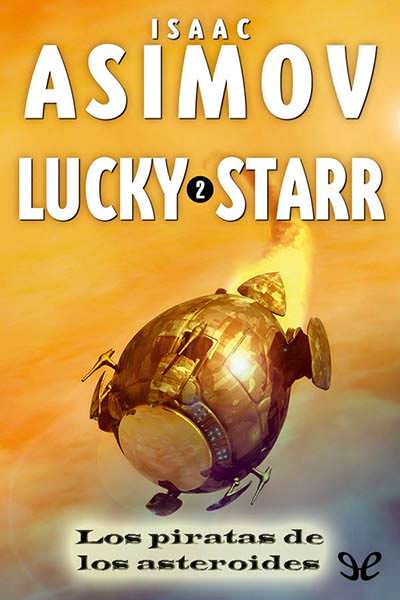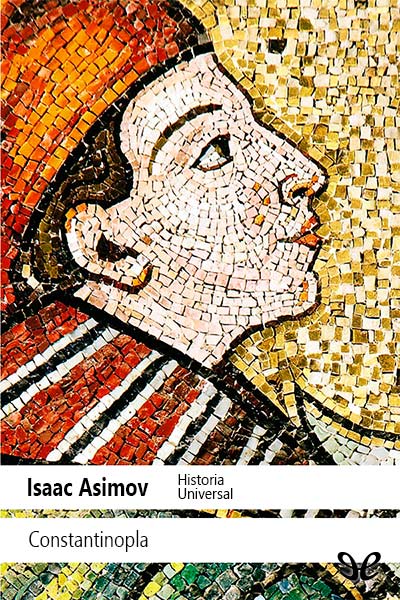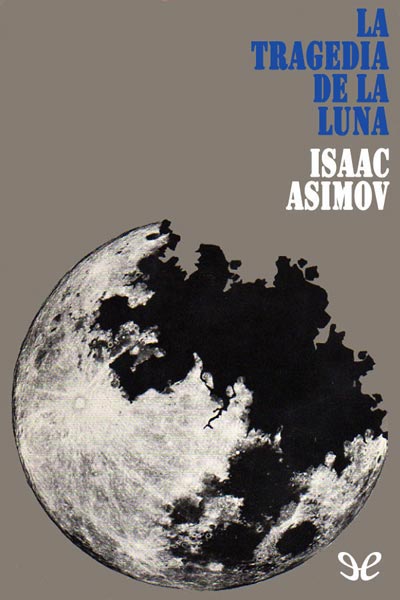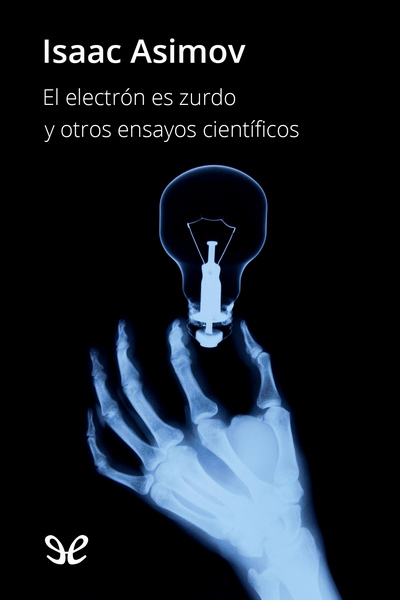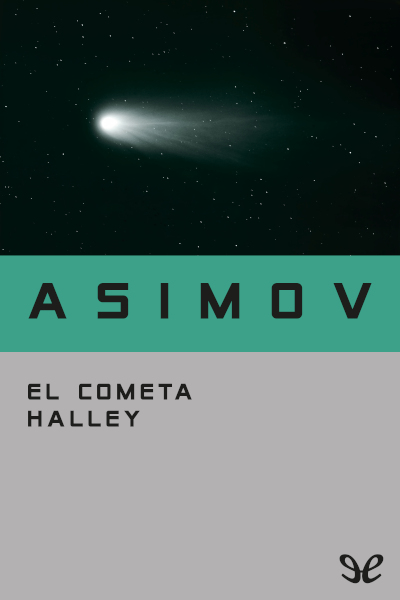oleebook.com
Hacia La Fundacion de Isaac Asimov
de Isaac Asimov - Género: Ficcion
Sinopsis
Isaac, Asimov Series: Fundacion 7 Year: 2009
Descargar
Descargar Hacia La Fundacion ePub GratisLibros Recomendados - Relacionados
Comentarios de lectores del libro Hacia La Fundacion
Esta es otra obra precursora de "La fundación" y fue escrita en 1993. Constituye por lo tanto la ultima estrega de la serie aunque su "tiempo" se desarrolle entre "Preludio a la Fundación " y "La fundación. Es una especie de aclaración de cosas que ya sabemos por la obra principal. Nos aclara por ejemplo el origen de la Psicohistoria y se da más información sobre Hari Seldon. Al igual que en "Preludio" se nota una mayor fluidez narrativa pero no llega, en mi opinión, a la categoría de la primera precuela. Pienso que realmente fue un intento del autor por aclarar aspectos que quedaron en vía muerta en las primeras narraciones. Por ello la puntúo con un 7.
Autor del comentario: JOSE M GONZALEZ
=================================
Autor del comentario: JOSE M GONZALEZ
=================================
Esta es otra obra precursora de "La fundaci�n" y fue escrita en 1993. Constituye por lo tanto la ultima estrega de la serie aunque su "tiempo" se desarrolle entre "Preludio a la Fundaci�n " y "La fundaci�n. Es una especie de aclaraci�n de cosas que ya sabemos por la obra principal. Nos aclara por ejemplo el origen de la Psicohistoria y se da m�s informaci�n sobre Hari Seldon. Al igual que en "Preludio" se nota una mayor fluidez narrativa pero no llega, en mi opini�n, a la categor�a de la primera precuela. Pienso que realmente fue un intento del autor por aclarar aspectos que quedaron en v�a muerta en las primeras narraciones. Por ello la punt�o con un 7.
Autor del comentario: JOSE M GONZALEZ
=================================
Autor del comentario: JOSE M GONZALEZ
=================================
Esta es otra obra precursora de "La fundaci�n" y fue escrita en 1993. Constituye por lo tanto la ultima estrega de la serie aunque su "tiempo" se desarrolle entre "Preludio a la Fundaci�n " y "La fundaci�n. Es una especie de aclaraci�n de cosas que ya sabemos por la obra principal. Nos aclara por ejemplo el origen de la Psicohistoria y se da m�s informaci�n sobre Hari Seldon. Al igual que en "Preludio" se nota una mayor fluidez narrativa pero no llega, en mi opini�n, a la categor�a de la primera precuela. Pienso que realmente fue un intento del autor por aclarar aspectos que quedaron en v�a muerta en las primeras narraciones. Por ello la punt�o con un 7.
Autor del comentario: JOSE M GONZALEZ
=================================
Autor del comentario: JOSE M GONZALEZ
=================================
Buen libro, aunque creo que de los 7 libros de la serie es el más flojo, se denota la madurez del autor pero no te emociona como los demás. Es buena la historia.
Autor del comentario: NECAXMAN
=================================
Autor del comentario: NECAXMAN
=================================
Lo que en principio era una trilogía fue creciendo, hasta convertirse en heptalogía. Este es el último libro de la saga, pero no es el final. Me explico: fue el último en publicarse (de hecho, un año después de morir Asimov), y por lo tanto, fue escrito al menos dos años antes, puesto que el último año de Asimov fue... poco productivo, por decirlo suavemente. Es decir, seguramente lo escribió hacia el 1990 o 1991. Y cuando murió, el legado fue un borrador, que fue revisado por Doubleday y Janet Asimov. Hay que tener en cuenta que en él Asimov se ve obligado a "matar" a Seldon, el psicohistoriador y primer gran protagonista de sus novelas, lo que no debe resultar nada fácil para alquien que se sabe muy enfermo. Y, en mi opinión, salvo la tristeza que puede llegar a transmitir (a través de Seldon, fundamentalmente), el libro es adictivo, emocionante y sorprendente, es decir, puro Asimov.En el orden de la saga completa es el segundo libro, y cierra todo el ciclo.En cuanto al libro en sí, trata de situar al lector en el punto en el que arranca la saga original. Es Asimov, y es la Fundación, nada más que añadir.
Autor del comentario: GINDALTONIC
=================================
Autor del comentario: GINDALTONIC
=================================
La historia va decayendo. Comparado con la trilogía original es muy aburrida. La historia ya está muy manida, con poco margen.
Autor del comentario: CELTA1111
=================================
Autor del comentario: CELTA1111
=================================
Reseñas Varias sobre este libro
As great as the original Foundation series with an extra portion of wit and humor, thereby more focused on society, characters, and human behavior than on psychohistory and big meta worldbuilding as in the original trilogy.
Heroes journey throughout innuendos and satirical deconstruction
of universities, faith, governments, and poverty fueled by discrimination and racism. That´s so sharp, in society's face, and ingenious that it raises Lem far above Clarke and Heinlein (facepalming fueled by external shame), making him seem a kind of easygoing Lem without the depressing and far over the top and hyper complicated mega philosophy.
Great, funny characters in ingenious constellations
Get ready to giggle, because it´s not just the slapstick situational comedy element that is big in here, but, as mentioned the amalgamation with satirizing every system humans created. The already hilarious main characters get in trouble with other characters that are made wacky by the inherent madness of the societies they´re living in.
Robots
Asimov just couldn´t withstand the temptation of adding some androids to the mix, probably with connections to some of his other works, prequels or sequels of the Foundation, and his robots series and short story collections. I am not sure about this, because it´s already complicated enough to keep track of the whole universe without trying to vivisect what extra easter eggs the author might have hidden.
A little suspense thriller plotline in the background
Asimov just needs that, but in contrast to other, far more difficult to follow works, it´s also much less complicated to follow and not the main plotline. Subjectively, I even had some problems with his suspense thriller novels, because they reduced the sci-fi level a bit too much to focus on the characterization of the hidden robot, murderer, or wacky AI (also not quite sure about the last one, I´m a notoriously unreliable narrator. Better try not to remember and absorb too much of the pointless, unserious drivel I´m secluding)
Why not the same quality all the time?
Asimovs´ later works are strongly fluctuating in reading pleasure and quality, even seem to somehow be written with focus on different elements, once mostly plot, then just characters, another time an average and lengthy balance of both. This may strongly be linked to the fact that evil fans and publishers kind of forced him to continue writing at a moment he didn´t really want anymore. Until they gave him 10 times as much money as usual, lol. His widow later said that he simply ran out of ideas.
Start reading it here!
Who still hasn´t begun the Foundation series, lucky enviable you, should initialize with this one, because it´s a much funnier and easier entrance to one of the best sci-fi worlds ever created than the hardcore original trilogy. Asimov doesn´t have to demonstrate anything anymore and can focus on fun, wit, characters, and a much more easygoing style than in the much more sophisticated, philosophical, complex, and thereby somewhat difficult to read original series. I still haven´t read the second prequel Forward to Foundation, but it seems to have good ratings and may the recommended reading in chronological order material too.
Tropes show how literature is conceptualized and created and which mixture of elements makes works and genres unique:
https://tvtropes.org/pmwiki/pmwiki.ph...asimov-isaac161 s Stephen1,516 11.7k
In the realm of science fiction, Isaac Asimovs stories have always been my woobie.
This rings especially true for his Robot and Foundation series. For me, theyre a literary panic room where I can escape the stress storms and never-ending deadlines of the day-to-day ruckus into a much simpler time where the ambient happy is always turned way up.
Yes yes before you say it, I'll acknowledge your gripes about Asimov and even concede to some of them.
Asimov wasn't as skilled a wordsmith as, say, Jack Vance, but, in fairness, how many people were. He wasnt as brilliantly thought-provoking as Arthur C. Clarke, and rarely, if ever, used his writing to address important social issues as the s of Heinlein, Silverberg and Ellison did.
Fine granted and SO what?
Asimov tales are just rousing good yarns told with an infectious; Star Trek optimism that fills you up with the belief that humanity is destined for bigger, brighter and better things. His stories are warm, cozy, familiar and fun. Theyre comfort food; a shot of optimism for the soul, moms chicken soup.
Therefore, as this is my own biased, subjective review, I shall give a hall pass to the grandmaster regarding his tendency towards clunky dialogue, his often unornamented, transparent characters and his occasional deus ex machina plot conveniences. They exist and this acknowledgement is as close to criticism of these stories as I intend to come.
PLOT SUMMARY:
Written in 1988, a quarter century after the original Foundation Trilogy, this long-awaited prelude to the classic series covers a critical period in the evolution of psychohistory. Beginning soon after Hari Seldons moment of eureka, when he first envisions the future-chaperoning science as nothing more than a curious philosophical impracticality, to the momentous events that lead to Haris realization that psychohistory has the potential to be developed as a practical, effective tool against the Galactic Empires pending collapse.
Taking place entirely on Empires capital, Trantor, the story covers what is known as the Flight, during which Seldon is forced into hiding from Eto Demerzel, the Emperors Chief of Staff, who wants Haris new science to be employed for the political benefit of Emperor Cleon I. While on the run, Hari travels across the massive planet, with its population of more than 40Billion, and interacts with various cultures. These interactions slowly work to remove the cant do fog from Haris perception of psychohistory.
Oh .and theres also a chubby-raising tie-in to Asimovs robot novels that does a great deal to smooth out some of the earlier inconsistencies between the two series and lays the foundation (no pun) for a merging of the two series that had begun in Robots and Empire.
THOUGHTS:
Uh Its good
Its fun
Its comforting
Flaws aside, the Foundation Trilogy was the first science fiction story I ever read and it began my love affair with the genre that continues to this day. Thus, these stories will always hold a special place for me and I don't believe I'll ever discontinue to view them fondly.
And with good reason, I think.
Asimov was a master at the big idea. He was an artist who painted stories on a ginormous canvas, depicting mega events and larger than life characters. The mind-bogglingly large, galaxy spanning empire he created for the Foundation series was the prototype for all of the vast galactic civilizations that came after.
He thought big, he wrote big, he entertained big. Yeah, Ill take that.
Now...I did have one fanboy gripe about this installment and it stems from my frustrated desire to learn, finally, from Asimov the nuts and bolts of psych-historical analysis. Logically, I grant that any such explanation had no chance of meeting my expectations and that Asimov, being as astute as he was, correctly decided not to provide revelations about the inner workings of the science. By maintaining the mystery, he avoided any taint upon the majesty of the idea. Still, I was a tad bummed by the lack in this area.
Oh well, I enjoyed myself and I loved that the story filled in gaps in both the Foundation series and the Robot novels. Worth a read, it will make you smile.
4.0 stars. Highly Recommended.
Nominee: Locus Award for Best Science Fiction Novel.
1980-1989 audiobook comfort-food ...more144 s Baba3,770 1,176
Chronologically the first book in the Foundation (post Robot era Galactic Empire series), yet only published in 1988, four years prior to his death, yet the then 68 year old Isaac Asimov is still creating and expanding his Empire reality! In this book we get to meet Hari Seldon when he first proposed 'pyschohistory' to the Empire. A wonderfully weighted and typically gloriously innovated piece of world building as seen through the viewpoint of 'outworlders' Harry and his female (nice one Asimov) bodyguard. Loved every single page and cared what happened to every single character, even fleeting appearances. 8 out of 12.
Ultimately to truly appreciate one of the greatest pieces of world building spanning aeons, one should really read the robot books first, starting with I, Robot, before stepping off into this Foundation series.
2021 readsci-fi-beam-me-up142 s mark monday1,747 5,545
Asimov's later Foundation novels appear to be about double the size of any of the novels in the original series, but that's neither here nor there because apparently size matters these days. Or at least in the 80s? No, now too. Anyway, this isn't going to be much of a review because I don't have much to say about this perfectly agreeable, minor note book. It details the lengthy learning experience that a youngish and rather persnickety Hari Seldon goes through on his way to creating psychohistory - which of course is the foundation of Foundation. He's on a world that is a lot our world - lots of countries, lots of cultures, lots of assholes, lots of opportunites for education (and for knife fights, martial arts, secret robots, revolution, all the good stuff). There is at times a Vancean flavor to the strange yet strangely familiar portraits of insular, tunnel-visioned societies, minus Vance's sardonic distance and plus Asimov's warm humanism. This is a mild but also surprisingly horny book, but since the feel of the dialogue is distinctly old-fashioned, even stilted, that made me smile rather than gag. And there is a very positive, romantic ending, which I enjoyed. My robot heart loves seeing cute lil' humans display their love so forthrightly because mainly I see quite the opposite displayed!
a charming & cheeky About Me on the last page:
Isaac Asimov was born in the Soviet Union to his great surprise. He moved quickly to correct the situation. When his parents emigrated to the United States, Isaac (three years old at the time) stowed away in their baggage. He has been an American citizen since the age of eight.
Brought up in Brooklyn, and educated in its public schools, he eventually found his way to Columbia University and, over the protests of the school administration, managed to annex a series of degrees in chemistry, up to and including a Ph.D. He then infiltrated Boston University and climbed the academic ladder, ignoring all cries of outrage, until he found himself Professor of Biochemistry.
Meanwhile, at the age of nine, he found the love of his life (in the inanimate sense) when he discovered his first science-fiction magazine. By the time he was eleven, he began to write stories, and at eighteen, he actually worked up the nerve to submit one. It was rejected. After four long months of tribulations and suffering, he sold his first story and, thereafter, he never looked back.
In 1941, when he was twenty-one years old, he wrote the classic short story "Nightfall" and his future was assured. Shortly before that he had begun writing his robot stories, and shortly after that he had begun his Foundation series.
What was left except quantity? At the present time, he has published over 440 books, distributed through every major division of the Dewey system of library classification, and shows no signs of slowing up. He remains as youthful, as lively, and as lovable as ever, and grows more handsome with each year. You can be sure that this is so since he has written this little essay himself and his devotion to absolute objectivity is notorious.scifi-60s-70s-80s65 s Peter113 10
Unless you're just a die-hard Foundation fan and have to read them all, "Prelude to Foundation" can safely be skipped. In particular, I'm not sure that I would recommend reading it prior to the other Foundation novels despite the fact that it's a prequel.
It's not spoiling anything to briefly explain why this is. In "Foundation," which is really more a shorts collection than a novel despite the fact that the stories do flow very well together, Hari Seldon is already an old man. The whole premise is based upon his having mathematically predicted the future using a technique of his own devising called psychohistory. He is, from page one, a legend.
Prelude to Foundation attempts to chronicle Hari's invention of psychohistory as a young man. The story flows much the plot of a B action movie, right down to Hari having some small martial arts skills. The young, hasty, Hari is a far less compelling hero than the iconic genius who has mathematically determined how to shorten ten thousand years of barbarism to just one thousand.
Of course, Asimov is a good enough storyteller that it all hangs together decently. But there's a lot of books out there to be had, and plenty of other choices even just in the Asimov shelf that are better.62 s Apatt507 828
What I have done is to prove that it is possible to choose starting conditions from which historical forecasting does not descend into chaotic conditions, but can become predictable within limits. However, what those starting conditions might be I do not know, nor am I sure that those conditions can be found by any one personor by any number of peoplein a finite length of time..
That is pretty much the gist of what Hari Seldon, Asimovs most iconic character, tries to accomplish in Prelude to Foundation, the sixth Foundation book to be published but the very first in chronological order. If you are considering reading this classic sci-fi series I personally recommend reading them in publication order rather than chronological order. Originally Asimov had no plan to write more than three Foundation books so clearly, the original trilogy have to stand on its own and there is no reason to read the prequels to follow them. Come to think of it I always recommend reading all series books in publication order, if you need to read the prequels in order to understand the original books then those original books leave something to be desired. More on this topic in the notes section after the review.
Hari Seldon is the genius mathematicians who developed psychohistory which he uses to guide the destiny of the entire human race scattered across the galaxy. In the original trilogy Seldon is a very wise old man, here for the first time we meet the legendary man in his thirties. He has just conceived of psychohistory as a mathematical concept but has no idea how to make it practical. At the beginning of Prelude to Foundation he is presenting his paper on psychohistory at a convention of mathematicians held in Trantor, the capital of the Galactic Empire. The sensational idea of - theoretically - being able to predict history using mathematics brings him to the attention of Cleon I, the Galactic Emperor and his formidable henchman Eto Demerzel. After summoning Seldon to quiz him about the practicality of psychohistory the Emperor lets him go but keeps him under surveillance in case he manages to make something useful out of his theory. Soon after his interview with Cleon, he meets a reporter called Chetter Hummin who convinces him to go on the run as the Emperor are about to pursue him and use him for political gains once he has time to consider the potential of Seldons theory. Seldon goes to Streeling University for sanctuary where he meets Dors Venabili who understand the importance of Seldons work and decide to protect him from his pursuers. When they do come calling Seldon and Dors go on the run, with the advice of Hummin they seek sanctuary in various administrative sectors* of Trantor. Each sector they stay in has very distinctive, peculiar culture and social mores. The authorities eventually catches up with him with surprising result.
Trantor, one world, one city
Basically, the plot of Prelude to Foundation is Seldon and Dors on the run moving from one sector of the planet to another, experiencing each sectors weird culture, discovering clues, and getting into trouble; picking up an Artful Dodger- street urchin called Raych along the way. Eventually, they come face to face with Demerzel and the denouement is quite unpredictable and amusing.
For the first half of the book Prelude to Foundation moves at a leisurely pace and, Asimovs other 80s novels features lengthy stretches of dialogue. The substance of the conversations is generally interesting enough not to grind the narrative to a halt, but the original trilogy is much more tightly written. On the other hand, in the 80s Asimov was more interested in developing characters. These characters are not particularly deep or subtly nuanced but they are quite likable and accomplish more than just driving the plot forward. Asimov was not great prose stylist but there is plenty of charm in his narrative, he seems to be having fun writing the book, gleefully including terrible puns, mischievous bits of dialogue and pulling the rug from under the readers feet.
It seems that the main idea of Prelude to Foundation is to take a closer look at psychohistory. One criticism of the original trilogy that I have seen is the basic tenet of psychohistory, which has been criticized as not only impossible but unbelievable. I suspect Asimov was aware of this criticism and uses it as a major theme for this novel. If you are critical of the use of psychohistory in the original trilogy I dont know if Prelude to Foundation will change your mind, personally, I never minded Asimovs concept to begin with. Still, this book gives psychohistory more of a background and I dig it.
Prelude to Foundation is mostly an entertaining and pleasant read, it does become a little loquacious and dry from time to time; not intolerably so, but less of that stuff would have been nice. However, fans of the series should not miss it. Forward the Foundation next!
Notes:
* Trantor is both a planet and a city, it is an ecumenopolis, a single continuous worldwide city). It is, however, divided into hundreds of sectors with around 50 million people in each.
Asimov did not invent Psychohistory but he did popularize it.
As I mentioned earlier, if you have never read the Foundation series before, I recommend starting with the original trilogy from the 50s. Having said that, Asimov himself recommends the chronological order which would mean starting with this book, Prelude to Foundation. However, this website shows Prelude as a supplementary volume. Basically, it is entirely up to you. Not reading the series at all is not an option
Autor del comentario:
=================================
